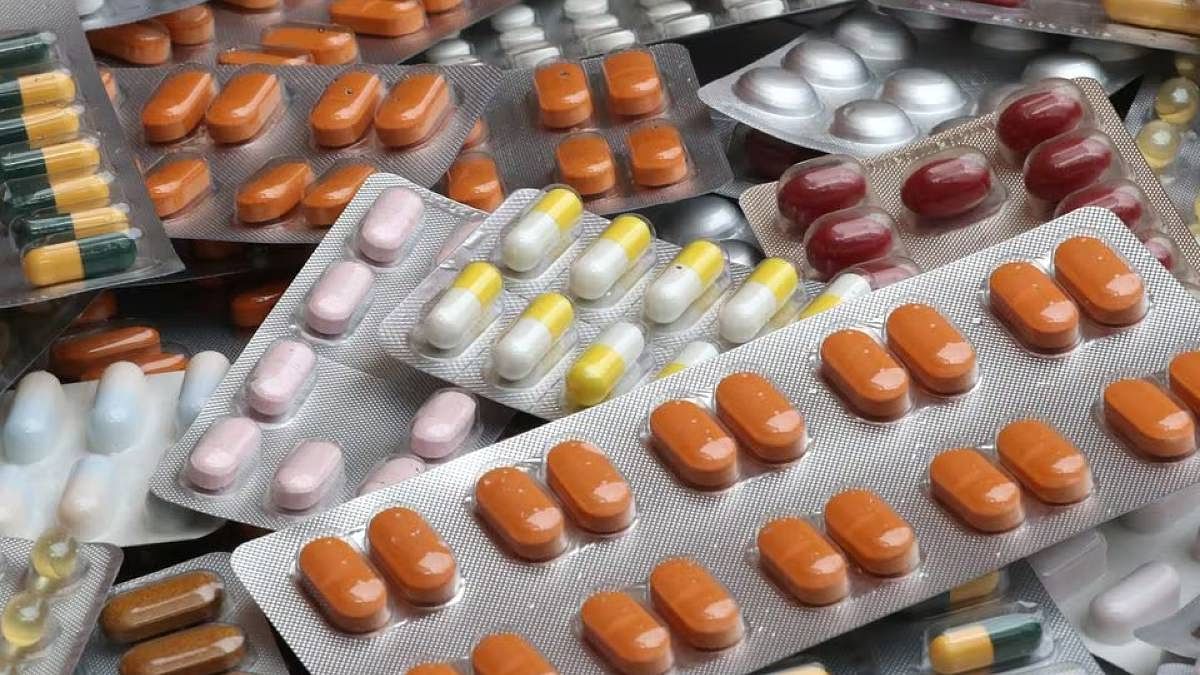New Delhi: Government initiatives to remove centrally unapproved and banned antibiotic fixed-dose combination (FDC) drugs have remained largely ineffective, and in 2020, most of the antibiotic formulations sold in India were unapproved or banned, a crucial analysis has found.
FDC drugs are those that contain a combination of two or more active pharmaceutical ingredients (APIs) in a single drug, usually manufactured in a fixed ratio (molecules in a particular ratio).
The analysis, titled ‘Regulatory enforcement of the marketing of FDCs in India: a case study of systemic antibiotics’ and carried out by researchers from India, Qatar and the UK, was published Friday in the Journal of Pharmaceutical Policy and Practice.
It found that as a proportion of total antibiotic sales, the sale of FDCs increased to 37.3 per cent in 2020 from 32.9 per cent in 2008.
It also found that although the total number of antibiotic FDC formulations in the market fell from 574 (2008) to 395 (2020), most marketed formulations — 70.4 per cent or 278 of 395 — were unapproved or banned.
“The Indian FDC problem is well known,” Aashna Mehta, a health economist attached to the Public Health Foundation of India in New Delhi and a co-author of the paper, told ThePrint.
“The regulators have taken several initiatives to deal with the issue, resulting in bans. However, despite such efforts, several unapproved as well as banned FDCs continue to be in the market,” she said.
According to Mehta, antibiotics are a particularly important segment due to the rising levels of antimicrobial resistance globally.
“The market should be periodically surveyed and enforcement strengthened,” she cautioned.
ThePrint reached to Rajeev Singh Raghuvanshi, Drugs Controller General of India, over the telephone for his comments on the findings, but he was not available. This report will be updated if and when a response is received.
Also Read: India considers policy on non-sugar sweeteners after WHO guidelines caution against adverse effects
India’s FDC problem
A pharmacologist associated with a government hospital in Delhi told ThePrint that all drugs in India are required to secure marketing approval from the Central Drugs Standard Control Organisation (CDSCO) before obtaining a manufacturing licence from state drug administrations.
But in the case of FDCs, he said, the companies secure manufacturing licences from states without getting marketing licences from the CDSCO, which would require them to submit a therapeutic justification for the drug.
“It has been seen that the majority of FDCs sold in India lack scientific rationale but are produced and marketed in order to create a brand and then marketed aggressively,” the pharmacologist said.
The Union health ministry, in June this year, had published a gazette notification banning 14 FDC drugs citing lack of therapeutic justification and an expert committee’s recommendation for their prohibition.
The FDCs were part of a group of 344 drug combinations that were banned in 2016 by the government after an expert panel, constituted at the behest of the Supreme Court, declared them “irrational” and found that they were marketed to patients without scientific data proving their efficacy and safety.
Worrisome findings
The latest analysis, which looked at various government documents and PharmTrac data, noted that previous studies had shown India has the highest number of antibiotic FDC drugs in the market worldwide and, with many of them potentially being inappropriate, the risk of increasing antimicrobial resistance is a particular and global concern.
In India, of the 4.5 billion standard units of antibiotic FDC drugs sold in 2020, the paper said, 41.5 per cent were combinations listed as “not recommended” by the World Health Organization (WHO).
The researchers wrote that two significant sets of measures towards removing irrational FDC drugs had been taken by the government and the Central Drugs Standard Control Organisation under separate initiatives, which began in 2007 and 2013, but they may have resulted in little change in India’s FDC drug market.
According to the researchers, India has long acknowledged that its large numbers of centrally unapproved FDC drugs and vast sales of many of these are matters of public health concern because they were not assessed for safety and efficacy by the CDSCO.
“Our study establishes that despite regulatory initiatives and measures since 2007 to control sales, hundreds of unapproved antibiotic FDC formulations remained on the Indian market accounting for over 700 million of the 4.5 billion standard units sold in 2020,” the analysis paper said.
An additional one-third of standard units (1.5 of 4.5 billion) sold in 2020 were of antibiotic FDCs approved in India but not recommended by the WHO. Limited and delayed progress has been made in this therapeutic area, according to the analysis.
Formally approved systemic antibiotic FDCs accounted for about 55 per cent of sales volume in 2020, compared with just under a third in 2008, it added.
Also, the researchers noted, despite the number of formulations reducing, in 2020 almost two-thirds (239 of 395) of marketed formulations accounting for over one-sixth (16 per cent) by volume, were still neither formally approved nor de facto approved with a no-objection certificate by the CDSCO.
Up to 39 formulations banned in 2018 and 2019 remained in the market in 2020, the analysis found.
“Given recent research findings of high sales in 2019 of FDCs not recommended by WHO and of 13 of the 20 top-selling systemic antibiotic FDCs in 2020 being expressly not recommended by the WHO, the higher overall market share of systemic antibiotic FDCs in 2020 (37 per cent) compared to 2008 (33 per cent) is a cause for serious public health concern,” the researchers wrote.
The paper added that slow and limited progress in removing irrational FDC drugs was the result of “weak, convoluted, badly targeted and inefficient regulatory enforcement”.
(Edited by Nida Fatima Siddiqui)
Also Read: Budget gives 200% boost to pharma sector as govt looks to curb dependence on China

